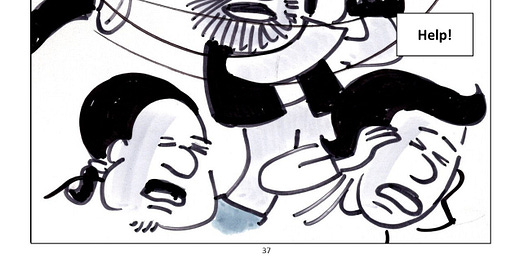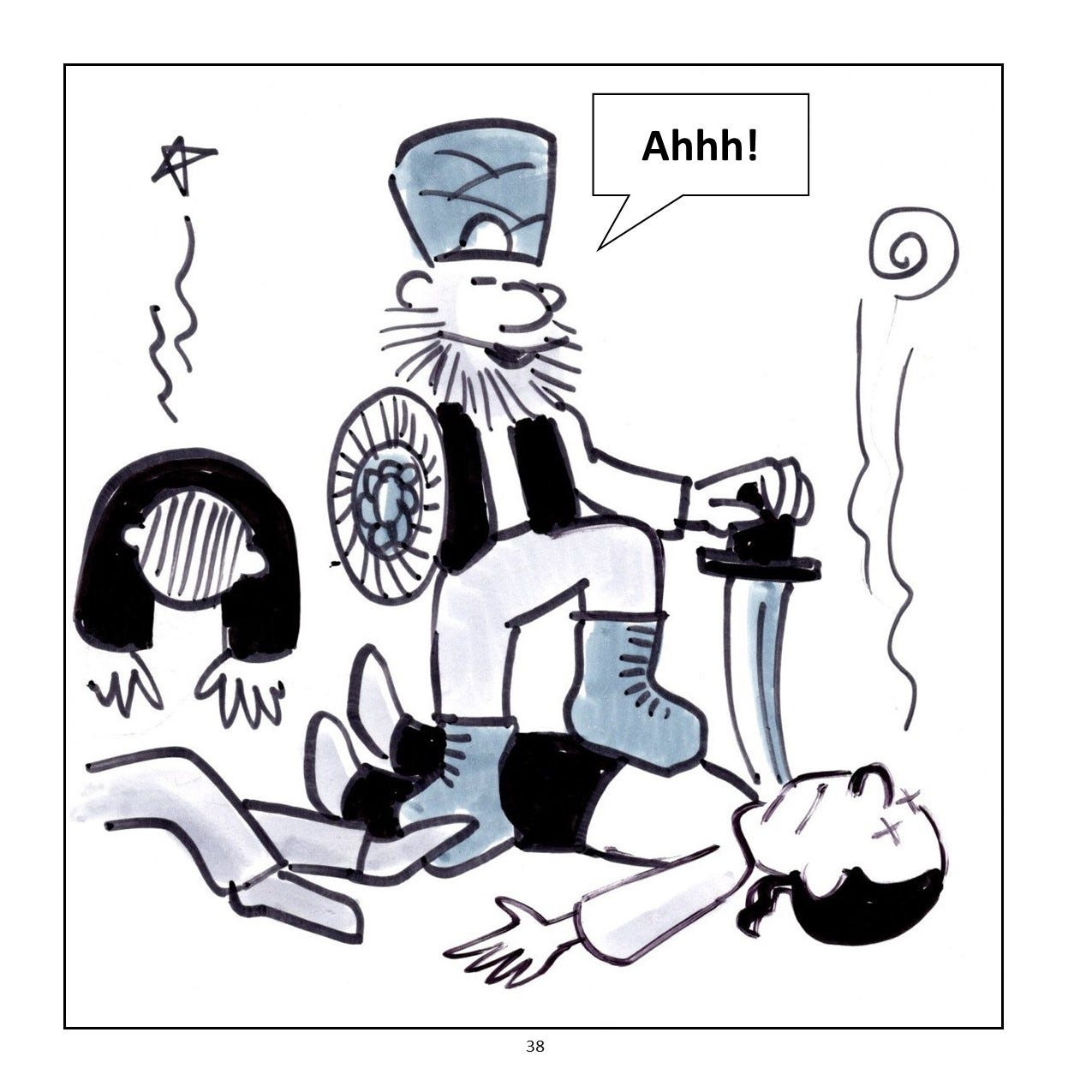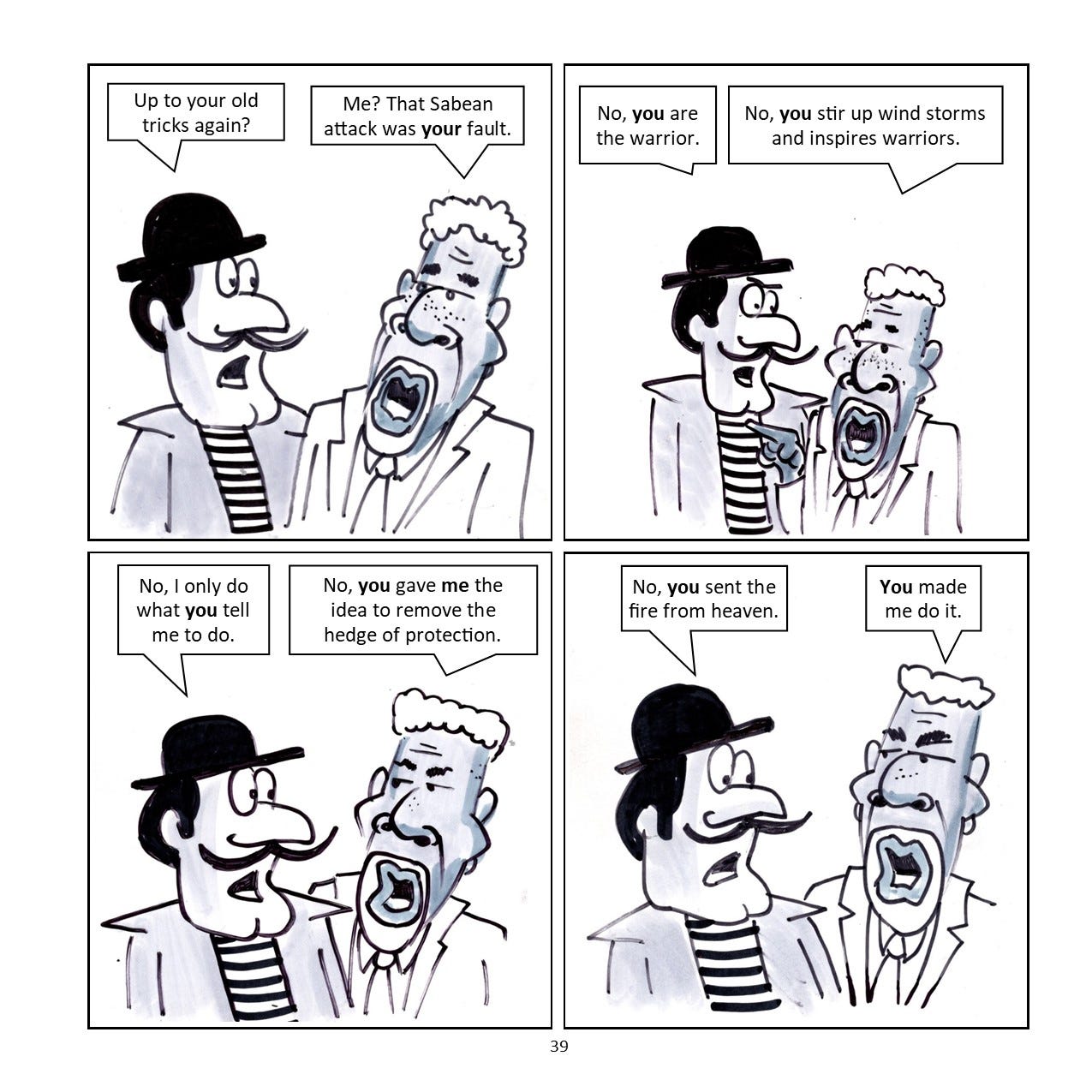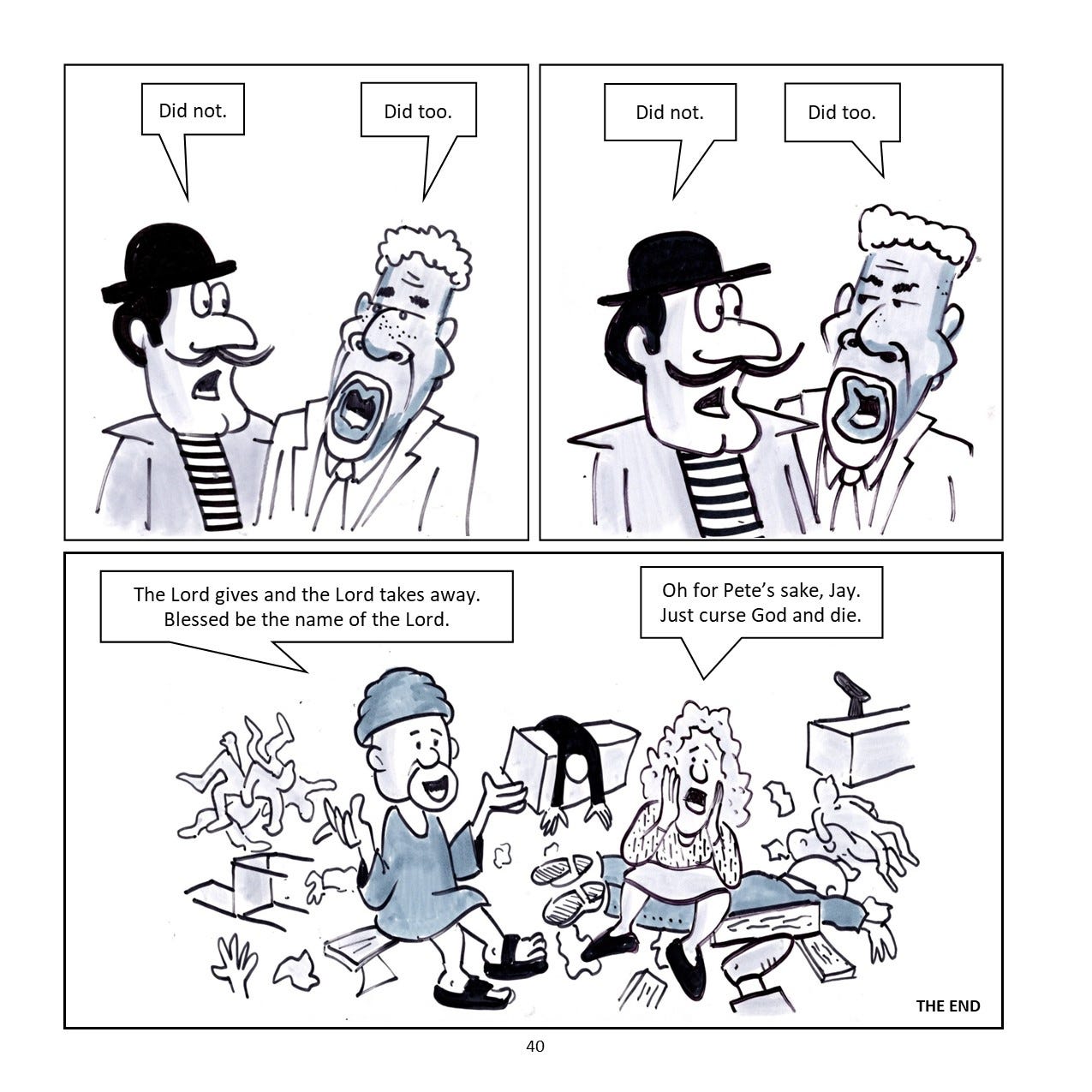Quotations from The Jewish Study Bible (page, panel)
39, 1, Me? That Sabean...“Sabeans attacked them and carried them off, and put the boys to the sword,” 1:15.
39, 2, No, you are… “He rushed at me like a warrior!” 16:14.
39, 3, No, I only… “Do not lay a hand on him,” 1:12; “...spare his life,” 2:6.
39, 4, You made me... “You have incited Me against him to destroy him for no good reason,” 2:3.
Commentary
For thousands of years Job has inspired people to ponder the mysterious ways of Divine Providence. Having been raised in a tradition that forbid any hint of disapproval of God’s management of human affairs (“Nay but, O man, who art thou that repliest against God? Shall the thing formed say to him that formed it, Why hast thou made me thus?” Romans 9:20, KJV), the book of Job blows my mind. Even more astonishing are believing Jews like Holocaust survivor Elie Wiesel who continued to have faith in spite of his ghastly suffering. Wiesel’s comment about Job’s wife tops my list of amazements. He wrote, “In a way, she is the only good person in the entire play.”
On the other hand, Christian commentators have not been kind to Job’s wife.
St. Augustine called her “diaboli adjutrix,” the Devil’s Handmaid. He also said, “She brought no help to her husband but went on blaspheming God. Skilled in wrongdoing, the Devil had not deserted her when he had destroyed her sons, for he had learned with Eve how necessary woman was for the tempter. But this time he did not find another Adam whom he could entice through a woman.” (On Patience).
John Chrysostom regarded her as a scourge which plagued Job more acutely than by any other means.
John Calvin called her “organum Satanae,” the tool of Satan.
Matthew Henry wrote, “She was to Job like Michal to David, a scoffer at his piety. She was spared to him … to be a troubler and tempter to him.”
And The Pulpit Commentary Homiletics by E. Johnson (no relation), says, “Here is the picture of a lively temper, quick to feel resentment at pain, or gratitude for good; but a shallow understanding, unused to meditation and reflection on the deeper meanings of life.” Ouch.
Ms. Obie’s Trial is my attempt to remedy the situation by defending a grieving mother’s right to protest the death of her children. One Jewish scholar wrote, “It is, or ought to be, obvious that in Job 3-42 a great genius has taken advantage of a chink in the armor of the orthodox doctrine of retribution, in order to drive a wedge into it.”
I drive another wedge by quoting another Jewish scholar, Rabbi Ben Zion Bokser. He wrote, “The point of the book of Job is that men may suffer in innocence, and that to protest against unjust suffering is part of a moral man's response to life. Indeed, if we ever allowed ourselves to regard suffering as a token of guilt, we would have to say that the Christians thrown by the Romans to the lions, the millions tortured and done to death by Hitler and Stalin were all guilty, for otherwise a just providence would have kept them from harm." Judaism and the Christian Predicament, page 345 (Italics added).
The story concludes tomorrow in a bonus section I call, “Interview With a Sabean.”








